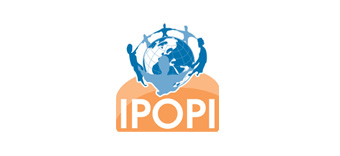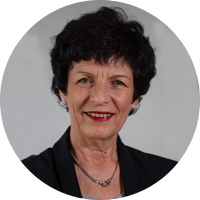September 26, 2019
From the Chairsperson’s desk
Dear friends,
We are stronger together than when we are alone! This old principle turns out to be truer than ever! Thanks to a successful joint application by IPOPI and IUIS (International Union of Immunological Societies) and the support of numerous medical and scientific societies, PID diagnostic tests have been included in the World Health Organization (WHO)’s Essential Diagnostics List (EDL) published on July 9, 2019. Our most sincere thanks go to the doctors from all the continents who helped in providing the advice and data that were needed to help IPOPI prepare the submission to WHO and fulfill all necessary requirements. We are delighted by this first result that put PID diagnostics on the map. Similarly to the WHO List of Essential Medicines, the WHO EDL aims to facilitate access to diagnosis by providing evidence-based guidance to countries. But we want to go further and, redoubling our efforts, we have been preparing in recent weeks a second application following the same joint stakeholder approach, with a view to submit it by WHO’s deadline in October. Fingers crossed!
Joint efforts make sense in a globalised world, especially in the field of rare diseases. With the support of different stakeholders, IPOPI is actively campaigning for newborn screening, access to treatment and care, supporting its NMOs whenever requested. A priority issue for us currently is the supply of immunoglobulins. For years we have witnessed continuous demand for immunoglobulins globally. The demand is expected to continue growing in the foreseeable future due to improving diagnosis of priority indications such as PIDs and the addition of new indications. Patients have been calling for several years for global sufficiency of plasma-derived medicinal products, based on balanced plasma collection between regions. Yet, today, we still see that 80% of the world’s plasma for fractionation comes from the USA. Whilst patients are grateful to American plasma donors, this imbalance means the rest of the world is relying heavily on US plasma. In Europe, this topic is increasingly in the spotlight and a stakeholders meeting will be organized by the European Commission at the end of October. IPOPI, of course, will take part, working hand in hand with our colleagues from the Platform of Plasma Protein Users (PLUS). As a global patient organisation, we take our responsibility and address European health authorities with this plea: don’t play with patients’ lives and help EU member states develop efficient plasma collection strategies. Some countries in Europe have shown it is possible to dramatically increase their plasma collection by changing their views and adapting to young donors’ lifestyle and by acknowledging that compensating plasma donors is legitimate when you consider the time and effort regular donations entail. These countries have taken into account the needs of patients, which are so often ignored and hidden behind principles that ultimately jeopardize their lives! Ethically speaking, patients should be heard, and their viewpoints considered in their legitimate fight for health and not only politely invited. To make sure this happens, we will need to continue to join our forces! With this said, I would also like to mention IPOPI’s third webinar “Immunoglobulin Therapies: From good to best practice” kindly presented by Prof Troy Torgerson, which will take place on September 26 at 14h UK time.
Awareness, advocacy, NMO support and stakeholders’ collaboration are paramount to allow decision makers to figure out the needs, the challenges and expectations of patients with PIDs. IPOPI has recently issued its annual report that shows how busy we have been all yearlong to fulfill our mission along our strategic objectives. Take a look at it!
Among most recent activities, IPOPI has had the great pleasure to be given the floor at the IDF (our American NMO) National Conference and Johan Prévot, IPOPI’s Executive Director, had the opportunity to present our organisation’s achievements and some global perspectives on the PID community priorities. The presentation was received very well by an enthusiastic audience. No doubt Julia Nordin, our new NMO Programmes officers who accompanied him, has been both impressed and inspired!
As you will read in this issue of e-News, our NMOs are very active and creative worldwide! And they are growing in number! I am delighted to welcome our latest member: Nicaragua! Greetings to its chairperson, Katia Valeska Ríos Fonseca, and thank you to Roberta Pena, our board member, responsible for Latin America to facilitate this new development! We are actively preparing the IPOPI Regional Meeting that will be held back to back with the LASID meeting in Cancun, on 10-11 October. This will be an opportunity for the LATAM IPOPI family to meet, to introduce Nicaragua, and work specifically on the situation of this region where so many patients struggle for diagnosis and access to treatment!
Another IPOPI-led major upcoming event is IPIC2019 on PID diagnosis and clinical care, which will be held in Madrid, on 6-8 November. We are so pleased to welcome physicians from many countries including junior doctors for whom we have provided 20 travel grants to help with their travel. In addition to this, we cannot wait to hear from the 3 doctors whose abstracts were selected to be presented in the main auditorium, a great achievement knowing 212 abstracts were accepted! Have a look at the congress programme, which focuses on the latest developments in PID diagnosis and the best practice in PID clinical management. Leading experts from the five continents will draw from their expertise and experience to deliver lectures aimed at advancing knowledge in the field. Still time to register!
For those of you in this hemisphere, I wish you all a nice Autumn, one of my favorite seasons and, wherever you live, I hope you all equally enjoy the coming months! I look forward to meet many of you in Madrid, if not earlier! Happy reading.

